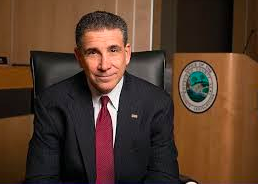 Some Pharmacists Prohibited From Informing Consumers Of Cheapest Prescription Medication Options
Some Pharmacists Prohibited From Informing Consumers Of Cheapest Prescription Medication OptionsNew City, NY (June 28, 2018) – If you went to the drugstore to pick up a prescription and could pay $100 instead of $125, what would you choose to pay?
As things stand now, you don’t necessarily have a choice.
That’s because some pharmacists have had to enter into contracts with health insurance carriers or pharmacy benefits managers that prohibit them from telling customers when it’s cheaper to pay cash for their prescription versus going through their health insurance. Pharmacists who violate the terms face penalties.
“Unsuspecting consumers become the victims of an unfair agreement,” Rockland County Legislator Lon Hofstein said. “Consumers go to their pharmacist for medication that for some, will be life-saving. The financial burden of ordering prescription drugs should not be increased because the pharmacist has a ‘gag order’ in place with the drug manufacturer or the pharmacy benefits managers.”
Legislator Hofstein, with the support of his colleagues on the County Legislature, is urging changes to state law to ban pharmacy “gag orders.” The effort would ban contracts between a pharmacist and a health insurance carrier or pharmacy benefits manager that prohibit or penalize pharmacists from disclosing information regarding the purchase price of a prescription medicine.
Additionally, under new or amended state law, pharmacy benefits managers and health care insurers could not require a person to pay for a covered prescription in an amount greater than the lesser of the applicable copayment, the allowable claim amount or the amount the person would pay if they were to pay without using their health insurance or drug discount plan.
In March, the results of a study by the University of Southern California’s Schaeffer Center for Health Policy & Economics found that consumers overpaid for their prescriptions 23 percent of the time, with the average overpayment amounting to $7.69.
Researchers analyzed the prices paid by 1.6 million people for 9.5 million prescriptions for the first half of 2013. The overpayments totaled $135 million during the six-month study period.
The companies that act as middlemen and handle drug claims for the health insurance companies – the pharmacy benefits managers – pocket most of the overpayment money.
“This happens when a consumer orders their prescription with the belief they will be saving money by paying with their insurance plan,” Legislator Hofstein said. “An example would be, the consumer pays a $10 co-pay, but the medication may have only cost $7. The end result is the consumer just overpaid. If the consumer had paid without using insurance they would have kept that $3 in their wallet. Instead, the pharmacy benefits manager gets to put it in their pocket.”
Nationwide, numerous states have already begun addressing the problem with new laws or changes to existing ones. Several bills have been proposed in New York and the Rockland County Legislature voted 16-0 in support of Assembly Bill 9893 and Senate Bill 7191 on June 19.
Although the state Legislature has ended its session for the year, the issue remains a focal point and the County Legislature continues to urge the state to address the crisis, Legislator Hofstein said.

You must be logged in to post a comment Login